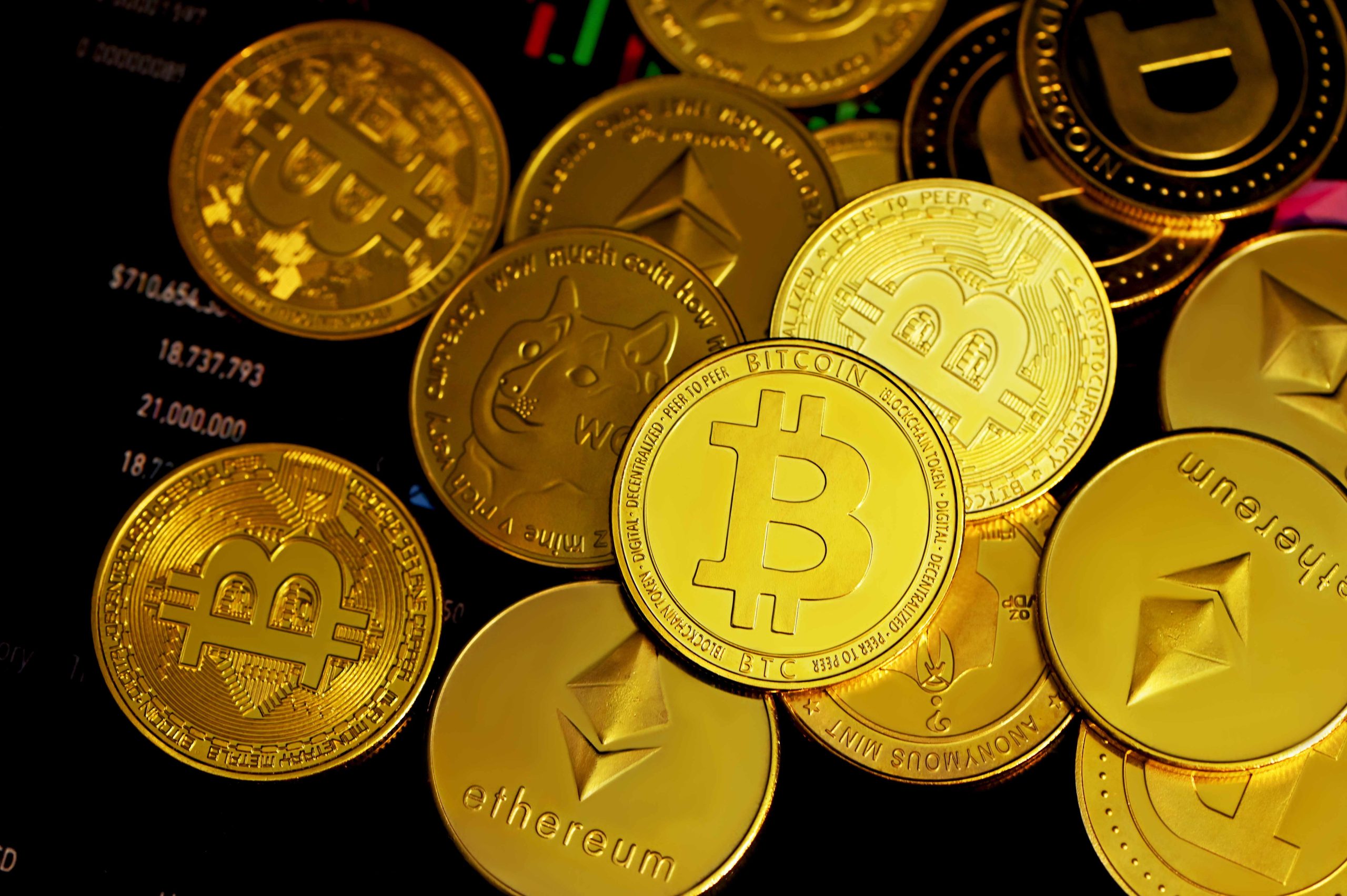Many years when cryptocurrency coins such as Bitcoin and some others were introduced in Nigeria, the program was seen as a fraud, a way of robbing or duping Nigerians. The coins are described as the cryptocurrency used for making money in a modern way.
The reactions of Nigerians to Bitcoin and Previous Views
The fear of scams that are commonly in place in Nigeria made people initially look upon Bitcoin with a sceptical view and associate it with the MMM scheme. Bitcoin was seen as a tool for the victims of the scams to make payments. Over time, the series of negative associations began to lessen as a result of factors promoting the use of Bitcoin and other cryptocurrencies.
Out of the crypto coins that were introduced then, Bitcoin was more popular. The Nigerians see it as another way to make money quickly. They are among the major global users of cryptocurrencies. They turned a deaf ear to what the government was saying to stay away from the program. The government sees investing in cryptocurrencies as a waste of time and a way to dupe Nigerians.
Even, Nigeria was ranked third out of countries that traded Bitcoin. The United States was ranked first wh,ile Russia was ranked second. According to the survey of 2020, around 32% of participants in Nigeria were confirmed. Researchers at the Central Bank of Nigeria suggest that rather than threatening the importance of the Naira,

Effort with the Central Bank
Having a disciplining device for the central bank that speaks against the stablecoin and other cryptocurrencies in Nigeria, I think, a better and positive effect can happen. Cryptocurrencies will no doubt soothe inflation and prevent any manipulation of prices and rates of interest that the government may impose on citizens.
How cryptocurrencies are promoted
Focus 1
One of the major factors promoting other currencies is the devaluation of the Naira by the Central Bank of Nigeria. We can recall 2020 when the Central Bank of Nigeria decreased the value of the naira by 24%. This is a result of the exchange rate in Naira to foreign currencies. For this, Nigerians find alternative ways of earning money in dollars and other currencies. Also, cryptocurrencies reduce the high fees Nigerians experience in transferring money in Nigeria.
Focus 2
Noticing the Central Bank of Nigeria, they attempted to freeze the bank accounts for crypto and related programs and activities. As said earlier, a lot of Nigerians continued to use cryptocurrencies while switching to peer-to-peer transactions and methods.
The methods bypass any traditional bank. The cryptocurrencies are then sent from one person’s decentralised wallet to another, and Many Nigerians begin to make money.
Focus 3
Angrily, the bank accounts of many people, especially youths who transact or trade in bitcoin or other othercryptocurrencieso were blocked. These wicked steps led the Nigerian youths and others to protest on trending on Twitter at that time.
Focus 4
According to our constitution, the act gives the CBN the sole right to issue Naira and the right to determine the exchange rate of Naira to other fiat currencies. Then, they passed laws against cryptocurrencies’ existence by saying that there is no legal framework addressing cryptocurrencies that can make us consider them legal tender.
In 2016, the Nigeria Deposit Insurance Commission (NDIC) and the CBN set up a commission to look into Bitcoin. When it is January 2017, the Securities and Exchange Commission (SEC) issued a warning and announced publicly that no company entity or individual that is involved in cryptocurrency activity or program is isrecognisedd or authorised.
Focus 5
This means no guarantee or insurance whatsoever is given to you about the loss of your money. In this case, the CBN instructed banks with the instruction to announce to people that they should be mindful of holding, transacting, or in any way using virtual currencies. Also, all the customers of the said banks that are virtual currency exchanges must have anti-money laundering regulations ready. This will detect the fraud, terminate their relationship with fraudulent customerss and report the suspicious transactions to the Nigerian Financial Intelligence Unit immediately.
The Move of the Central BanInin 2017, the step of the CBN was shocking as they announced the ban of all the banks facilitating transactions with cryptocurrency. But this ban was not enforced; they cautioned Nigerians to be careful. The Central Bank of Nigeria, through members of the research departmentt just educated the citizens of Nigeria about cryptocurrencies
When it was 7 February 2021, the Central Bank of Nigeria saw that there was a need to protect the public from any threat through any unregulated activity and potential areas of illegal operations. Also, all the companies that have to do with crypto are not allowed in Nigeria. In some other countries ,including in Africa, there is a clear ban on crypto.
As the Central Bank of Nigeria (CBN) refused to recognise crypto as a legal currency in Nigeria, it placed a ban on banks engaging in crypto transactions, activities, and the digital assets market in Nigeria. The ban is to protect Nigerian citizens from unlawful activities. Therefore, cryptocurrencies choose to operate independently, as peer-to-peer trading and transactions are the alternatives.
The Status of This Cryptocurrency in Nigeria
Focus 1
The improvement of things convinces people. After a careful study by price tracker Coin Gecko, we in Nigeria began to show more interest in cryptocurrencies than any other country in Africa. According to the statistics in Nigeria, we have a score of about 371 as indicated by Google Trends data when searching the keywords or key phrases such as “buy crypto” or “invest in crypto”.
Focus 2
Also, in the discussion to look into the impact on Monetary and Fiscal Policy, the CBN researchers came up that cryptocurrencies might have a positive effect on the agricultural and education sectors in Nigeria. In further discussion, especially in the agricultural sector, they suggested that blockchains have a significant potential to enhance access to our finances.
This is a result of connecting the technology to their business model, which can find solutions to food security issues in Nigeria. Also, in the education sector, they view cryptocurrencies as an opportunity to elevate the standard of education in Nigeria.
Focus 3
We can remember that in 2009, governments began to shape regulations globally to fight fraud in the realm of blockchain and digital assets. This trend mirrored Nigeria.
As we knoww Nigeria is the most crypto-curious nation, and the nation witnessed a problem of cryptocurrency interest, especially during the 2022 market crash.
Focus 4
In 2022, the SEC published a document stating the rules and regulations for digital assets. Crypto in Nigeria is required to obtain a permit from the SEC and documents that adhere to regulations for the security of a virtual asset service provider license. This will maintain and sustain paid capital and security measures that will mitigate cyber risks.
Crypto exchanges that are operating in Nigeria are now required to obtain a permit from the SEC. This is to adhere to regulations that include securing a virtual asset service provider (VASP) license, maintaining a substantial paid-up capital, and implementing security measures that mitigate cyber risk.
Naira conversion Issues
Up till now, many Nigerians are still facing the challenges of converting cryptocurrencies to local currency. This is a result of the detachment of the banking sector from crypto transactions. Though there is a series of emerging solutions, such as the Breet App. This App enables direct conversion to naira. There is a hugetaxn on cryptocurrencies with the Federal Inland Revenue Service, too.
The present state of cryptocurrency
Today, it is no longer news that cryptocurrencies are a store of wealth for economic development and a legitimate gateway for payments, trade, and investments. The regulatory bodies have been taking a proactive measure and stance on it to stay in Africa, especially in Nigeria. As the nation develops, cryptocurrency is going to be a promising integral part of the financial fabric for the average Nigerian citizen.
At present, Nigeria stands as the most populous country. Even in Nigeria, we have the largest economy in Africa, with approximately more than $500 billion of nominal gross domestic product. The World Bank has indeed considered Nigeria as an emerging market that is widely regarded as aprospectivee economy. Consequently, Nigeria ranks 152nd in the Human Development Index.
Conclusion
In conclusion, the news revealed this year that the transactions of cryptocurrencies have been legalised in Nigeria. The transaction bans in banks have been lifted. This is great news, as we know that our worries about the transactions are gone. You can read similar posts on our business page on the site.








